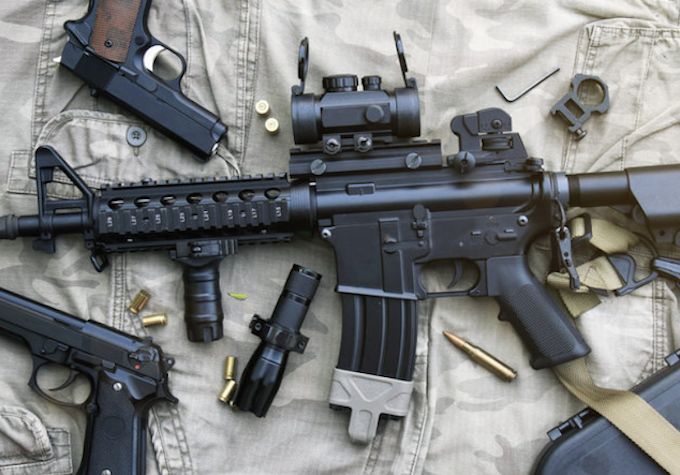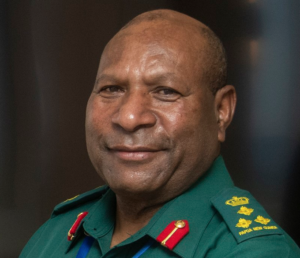
By Rebecca Kuku in Port Moresby
Many allegations have been levelled against Papua New Guinea’s disciplinary forces over the years, alleging that police and soldiers sell firearms.
However, Papua New Guinea Defence Force (PNGDF) Commander Major-General Gilbert Toropo denies these claims, saying all firearms are inspected and are accounted for on a fortnightly basis.
He said that the military had a system in place to ensure accountability for weapons in the force.

With recent reports of the use of firearms in tribal fights across parts of the country, many have started to ask where they are getting the guns from.
General Toropo said such statements must be backed up with evidence.
“Today, people can get such military specification weapons anywhere through the borders,” he said.
“So these allegations have to be supported with evidence. It is unfair to make generalised statements which only undermine our efforts to make PNGDF a force that our people and governments can trust.
“It’s easy for people to make statements that only discredit the force [and] that are very hard to retract,” he said.
Attempts made to get comments from the Royal Papua New Guinea Constabulary (RPNGC) were unsuccessful.
Unwritten rule
Back at Independence in 1975, there were already a few guns in the community, but as the former Provincial Secretary of Chimbu, Barungke Kaman, said some 40 years ago, there was an unwritten rule that they would not be used in tribal fights, where participants would stick with traditional weapons.
When asked about the consequences of those unwritten rules being dropped, Kaman responded at that time that “there would then be mayhem”.
Well those rules have long since been dropped, said Institute of National Affairs (INA) executive director Paul Barker.
Barker said tribal leaders today were hiring gunmen — or hitmen — often from outside their own clans, to target opponents, and the other side responded in the same way.
“We had the gun summit and task force, led by former commander Jerry Singirok and respected senior police officers, like John Toguata, but little action has ever been taken by government to follow up,” he said.
“This is partly because those that are involved in the gun trafficking and arming of groups, sometimes called warlords, are often closely linked to politics and politicians, helping deliver support and countering opponents, or law enforcement officials.”
According to the United Nations Trust Facility Supporting Cooperation on Arms Regulation (UNSCAR) that backs action on guns regulation, Papua New Guinea has about 51,957 illegal and unlicensed firearms.
Tougher PNG gun laws
In 2018, to address the widespread use of firearms in crimes and in tribal fights, Parliament passed tougher gun laws that included penalties of up to K10,000 (NZ$4000) or five years’ jail for the use of unlicensed firearms or the misuse of licensed weapons, with the manufacturing of guns now attracting up to 10 years’ jail time.
But Barker said users and manufacturers of guns seemed to consider themselves astonishingly immune from arrest and prosecution by law enforcement.
Some operating within PNG’s cities have even been ready to be interviewed by international film crews and barely conceal their identities or whereabouts or activities, as though they consider themselves protected from police action.
Rebecca Kuku is a senior PNG Post-Courier journalist. She also reports for The Guardian’s Pacific Project.












































